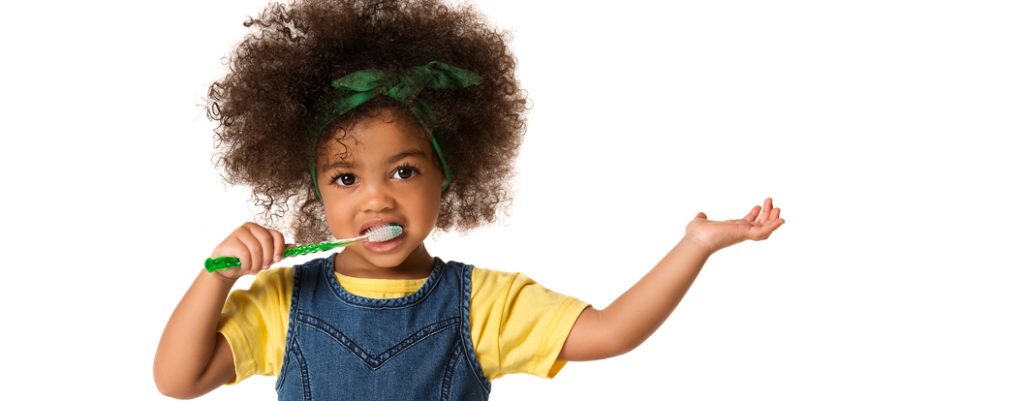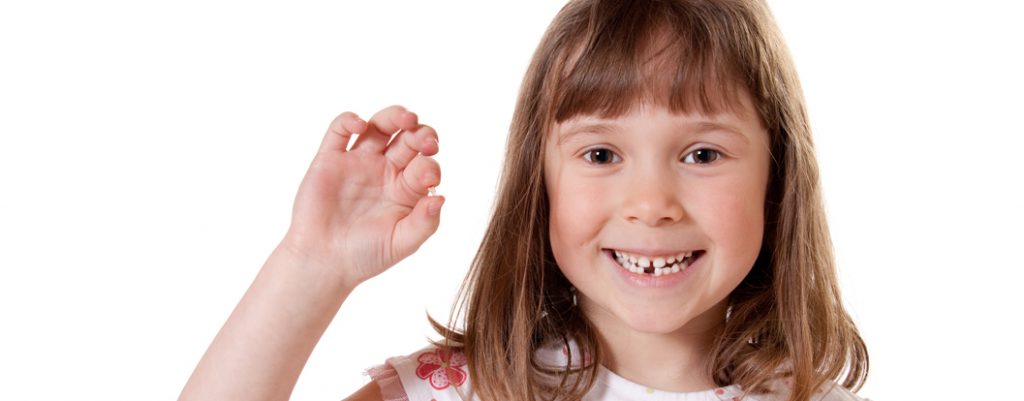Teeth play a major role in our overall health. Not only are they a vital step in food digestion, but healthy teeth are a major line of defense against harmful bacteria that can invade the bloodstream. We’ve put together a list of 10 Habits of Good Tooth Care that will help families keep those pearly whites sparkling for a lifetime.
- Oral hygiene starts in infancy. Bacteria are present even in the smallest baby’s mouth. It’s important for parents to gently clean their infant’s gums with a clean wet cloth. Babies should never be put to bed with a bottle, as this can allow bacteria to quickly grow in the liquids that pool in their mouths.
- Good brushing takes practice. Parents should begin teaching their toddlers how to brush their teeth using a training toothpaste that is safe to swallow. Toddlers need to practice and get used to holding the toothbrush. But parents should follow up by brushing after their child brushes until parent and dentist agree that the child can brush on his own, which could be around age 6 or 7.
- Brush teeth every morning. While it’s still up for debate whether brushing before or after breakfast is best, teeth definitely need to be brushed every morning. If you do wait until after breakfast to brush your teeth, it’s best to wait about 30 minutes so that tooth enamel isn’t still weakened from acids in the food. A better compromise may be to brush as soon as you wake up, and then drink a glass of water after eating.
- Drink plenty of water. Staying hydrated is essential to keep the body running at its best, and this includes oral health. Water after meals will keep acids and sugars moving away from teeth and gums so they don’t have time to dig in and cause harm.
- Avoid foods high in sugar. Sugar might be delicious, but too many sweets are hard on teeth. Sugar turns into acid in the mouth, and this acid is what attacks tooth enamel to cause cavities.
- Eat foods that are good for the mouth. Foods that are high in calcium help teeth remineralize, which is how they recover from acid in other foods. Crunchy fruits and vegetables have a high water content, which stimulates saliva and keeps bacteria moving away from teeth and into the digestive tract.
- Brush before bed. Brushing teeth before going to sleep removes the day’s bacteria from teeth so that it can’t harden into plaque, which causes cavities and gum disease. To make sure the mouth can rest easy overnight, avoid eating or drinking anything other than water after bedtime brushing.
- Floss every day. Flossing between teeth will help to remove food particles that get stuck, and it will clear the bacteria that your toothbrush can’t reach. Daily flossing is important for avoiding cavities between the teeth and gum disease.
- Remember the tongue and gums. The bacteria in your mouth don’t just live on your teeth. They camp out all over the place, so it’s important to gently care for the tongue and gums, just as much as you care for your teeth. Most toothbrushes have rubber nubs on the backside of the head that is made for brushing over the tongue. Mouthwash is similar to floss in that it can reach spaces that a toothbrush can’t. Talk to a pediatric dentist before allowing a child to use mouthwash, though, as swallowing it can be harmful.
- Visit the dentist twice a year. While the majority of oral health maintenance takes place at home, dental checkups are an essential component. Starting in infancy, the dentist will be on the lookout for potential problems and will reinforce good habits. Catching potential cavities before they start with regular cleanings will prevent painful and expensive treatments later. By taking care of teeth at home and keeping regular dental appointments, you and your kids will have a great experience with the dentist that supports healthy teeth and gums for life.
There you have it, 10 Habits of Good Tooth Care! If you’d like more tips and tools for caring for teeth, follow us on Facebook and Instagram.





